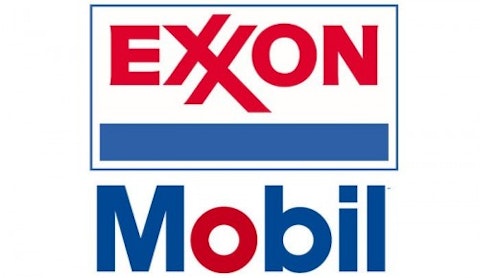Big oil firms are going to great lengths to find new sources of energy. Taking on harsh environments is one big issue, but so, too, is taking on the hard to quantify risk of operating in certain nations. The recent Algerian hostage situation is just the most recent example of the risks about which investors need to be very aware.
Hard to Find
Royal Dutch Shell plc (ADR) (NYSE:RDS.A), a well-respected oil giant, recently saw its Kulluk drill ship run aground in the arctic waters off Alaska during a storm. The event, though likely to be much less devastating than some other notable accidents, quickly brought out critics demanding that arctic drilling be halted across the board.
This is problematic because the easy oil has already been found and the world still craves, and needs, so-called black gold to keep moving. Since alternatives aren’t economically viable just yet, drilling will have to continue. That said, increasingly, oil discoveries are in hard to reach areas fraught with risk.
Nature isn’t the Only Obstacle
If nature were the only problem with oil and other energy sources it might not be so bad. However, people are a problem, too. For example, large energy companies have increasingly had to travel to far off lands to get access to this fuel source. Sometimes these countries are outright hostile to Western nations and other times the country’s residents are the problem.
The recent human created disaster in Algeria is a prime example. With more than 80 people dead, this event is clear evidence of the risks that companies are taking to gain access to oil and natural gas. In Algeria an al-Qaeda related group is accused of taking control of the Sharan In Amenas facility run by BP plc (ADR) (NYSE:BP) and Statoil ASA(ADR) (NYSE:STO) with the hope of stopping France from continuing its military operations in Mali.
The Risks Only Seem to Get Bigger
Although natural gas has seen a resurgence because of new drilling techniques, the world’s demand for energy isn’t set to fall any time soon. Events like the one in Algeria are sad, but are likely to continue taking place. While this situation was resolved, with military force, employee deaths are clearly an undesirable outcome. BP and Statoil are likely to see legal issues arise from this event and the cost to protect workers and facilities might also increase. Neither are positives.
These two aren’t the only ones exposed to such risks. For example, TOTAL S.A. (ADR) (NYSE:TOT)’s efforts to find new reserves has taken it to some interesting places, including countries that have suspect histories when it comes to dealing with outsiders. Russia is one such country, but Total also has notable dealings within Africa and the Middle East. If militants attacked an energy facility run by British and Norwegian companies to stop a French military action, Total must be gravely concerned about its operations in Africa. This is also one of several reasons why the French energy giant’s dividend yield is well above industry leader Exxon Mobil Corporation (NYSE:XOM)’s.
Italy’s Eni SpA (ADR) (NYSE:E) is another company with notable exposure to countries with questionable histories. That said, management has worked diligently to foster positive relationships with its country partners. While its proximity to Africa has been a benefit in this, these exposures also come with risk. If BP and Statoil were targeted, why not Eni? Investors in Eni need to understand that working with difficult to deal with countries is a part of Eni’s business focus.
